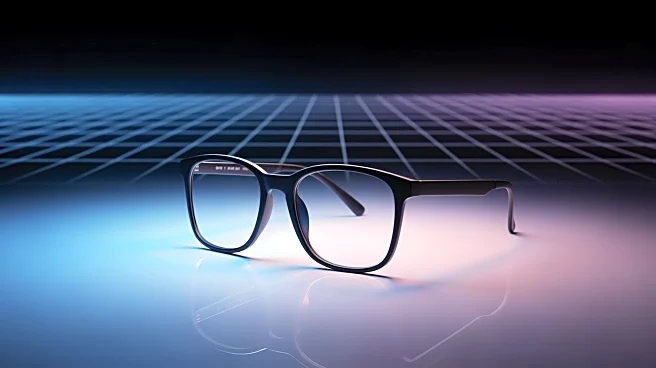What's Happening?
Meta, led by Mark Zuckerberg, is advancing its augmented reality (AR) initiatives, aiming to replace traditional smartphones with smart glasses. The company has introduced Ray-Ban Meta Display glasses, featuring an AR-style heads-up display for various
tasks, priced at $799. Additionally, Meta is developing Orion AR glasses, which utilize a compute puck to offload processing, making the eyewear lighter. The EMG wristband, reading electrical signals for subtle gestures, complements these devices, reducing dependency on smartphones.
Why It's Important?
Meta's shift towards augmented reality represents a significant change in how technology integrates into daily life, potentially reducing reliance on smartphones. This move could impact the tech industry by setting new standards for wearable technology and influencing consumer behavior towards more immersive and integrated digital experiences. Companies in the AR space may benefit from increased interest and investment, while traditional smartphone manufacturers might face challenges adapting to this new paradigm.
What's Next?
Meta plans to offer Orion AR glasses to developers in 2026, with a consumer launch anticipated in 2027. This timeline suggests a gradual transition towards mainstream adoption of AR technology. Stakeholders, including tech companies and developers, will likely focus on creating applications and ecosystems that leverage these new devices, potentially reshaping the digital landscape and consumer habits.
Beyond the Headlines
The introduction of AR glasses raises questions about privacy and data security, as these devices could capture and process vast amounts of personal information. Ethical considerations regarding user consent and data protection will be crucial as this technology becomes more prevalent.
















